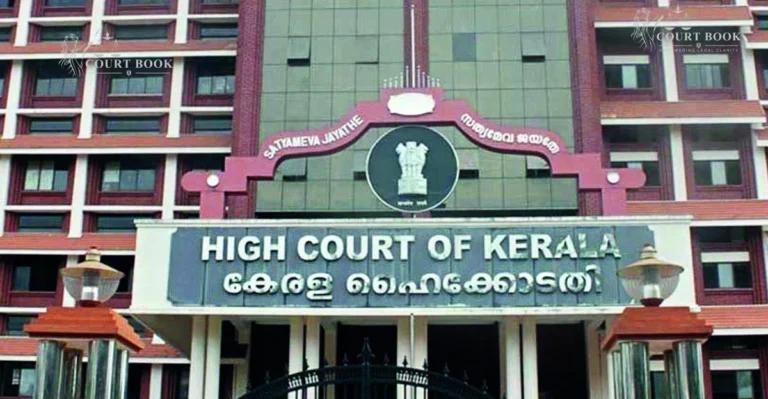The Kerala High Court has made it clear that the police cannot misuse their investigative powers to summon an advocate and force them to disclose confidential client information. The ruling emphasized that the authority granted under Section 179(1) of the BNSS does not extend to compelling a lawyer to divulge privileged communication between them and their client.
This significant observation came in a case where an advocate representing an accused was served a Section 35(3) BNSS notice, requiring him to appear before the police for questioning related to his client’s case. The court firmly stated that such actions violate the advocate’s rights and the fundamental principles of legal practice.
Read also: Walayar Rape-Death Case: Kerala High Court Grants Interim Protection to Victims' Parents
Justice Kauser Edappagath, while passing the order, strongly condemned the police's actions, calling them "a strange procedure unheard of in criminal investigation." The court emphasized:
“While the police can issue a summons to a suspect or witness, they cannot summon an advocate to the police station in his professional capacity. The power of the police under Section 179(1) of BNSS cannot be stretched to call for an advocate who is appearing for the accused in the crime to divulge information between him and the client.”
By attempting to summon the lawyer, the police not only infringed upon the accused’s right to legal representation but also violated the constitutional rights of legal practitioners.
Read also: Madhya Pradesh High Court Grants Centre Two Weeks to Respond to PIL on Public Awareness of POCSO Act
The judgment further clarified that under no circumstances can an advocate be forced to reveal any communication exchanged with a client in a professional capacity, as such communication is protected under Section 132(1) of the BSA.
“No advocate can be compelled to disclose any communication made to him by his client in the course of their professional relationship under Section 132(1) of BSA. The said provision protects the confidentiality of communication between an advocate and his client.”
Read also: Madhya Pradesh High Court Considers Contempt Action After Advocate's Remarks on Case Pendency
Case Background
The case involved an advocate representing a couple accused of forgery and illegal stay in India. The couple, alleged to be Bangladeshi nationals, were booked under Sections 336(2) and 340(2) of the BNS and Sections 14, 14(b), and 14(c) of the Foreigners Act.
- The advocate filed a bail application for the accused, but it was rejected.
- Soon after, the police issued a Section 94 BNSS notice, asking the lawyer to produce documents related to the accused.
- The advocate submitted the required documents, including original ID proofs, before the court.
- The next day, he received a Section 35(3) BNSS notice from the police, ordering him to appear for questioning or face arrest.
- The advocate challenged this notice in the Kerala High Court, arguing that it was a retaliatory move since his client had previously accused the police of custodial torture.
During the court hearing, the High Court orally reprimanded the police officer, questioning his authority to summon an advocate. Following this, the police withdrew the Section 35(3) notice.
However, the court still went ahead and ruled that the issuance of the notice was illegal and ultra vires (beyond legal authority). The court noted that the police appeared to be attempting to involve the advocate in the crime without any substantial evidence.
The court further explained that Section 35(3) of BNSS gives the police the power to issue notices only when a reasonable complaint has been made, credible information has been received, or reasonable suspicion exists regarding the commission of a cognizable offense.
Referring to landmark Supreme Court rulings in Arnesh Kumar and Satender Kumar Antil, the court stressed that police officers must strictly adhere to the provisions of Section 35 BNSS and cannot misuse it for intimidation.
"Under no circumstances will the police have any authority to interfere with the freedom of any individual, much less an advocate of an accused, by serving notice under Section 35(3). The power given to the police under Section 35(3) is for the sake of preventing abuse of powers and cannot be used to intimidate, threaten, and harass a person (Unnimon K.A. v. State of Kerala and Others, 2020 (6) KHC 53)."
The ruling serves as a strong safeguard for advocates, ensuring that their professional obligations and ethical responsibilities are not compromised due to police overreach.
The Kerala High Court's decision sets an important precedent, reinforcing the principle that lawyers cannot be treated as informants or investigators in cases involving their clients.
By striking down the illegal notice issued under Section 35(3) BNSS, the court has sent a clear message:
- The police cannot summon an advocate to reveal confidential client communication.
- Legal practitioners are protected under the Constitution and the Advocates Act.
- Section 35(3) BNSS must be exercised carefully and not be used as a tool for harassment.
With this ruling, the rights of advocates and the fundamental principles of legal defense remain safeguarded, preventing undue interference from law enforcement agencies.
The court directed the State Police Chief to give direction all police officers in the state to strictly comply with the Section 35(3) before issuing a notice under it.
Case No: WP(Crl.) 363 of 2025
Case Title: Ajithkumar K. K. v State of Kerala and Another














